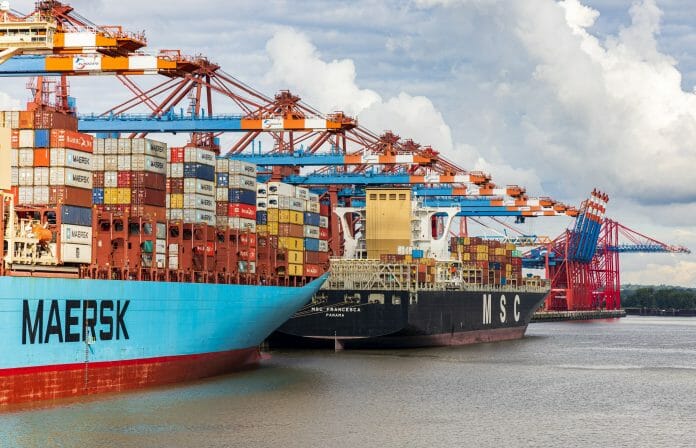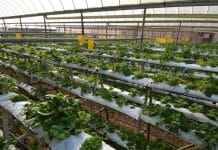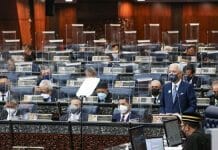An important lesson from the Covid-19 pandemic is that trade needs to be balanced between economic gains and the environmental and social needs. Disruptions in global supply chains due to the pandemic have exposed economic vulnerabilities, and these vulnerabilities are further worsened by poor environmental resource management and lack of proper safeguards for workers on the domestic front. Economic gains should therefore not be the sole purpose of trade.
In turn, economic gains from trade do not reflect the readiness of countries for sustainable trade. A good example is Vietnam. Having captured the gains of supply chain diversification, Vietnam, according to the Asian Development Bank (ADB), is poised to mark more growth post pandemic than any other major Southeast Asian nation. Despite the positive economic outlook for Vietnam, the recent 2020 Sustainable Trade Index (STI) revealed that Vietnam has regressed on the environmental and social pillars relative to the other economies.
Why sustainable trade matters? First, countries that fall short on environment and social pillars run the risk of becoming less attractive to foreign direct investment (FDI), and FDI complements trade in many contexts. Second, countries that do not achieve sustainability face problems exporting to countries that tie market access conditions to sustainable development objectives. Third, countries that fail to trade sustainably encounter difficulties in participating in modern (or high quality) trade agreements that advance the environmental and social agenda.
Sustainable trade is a new and important driver for economic growth and therefore, countries can no longer decide to revisit this issue only once the pandemic has abated. Sustainable trade is also necessary for countries to access markets and integrate with the next frontier of sustainable global supply chains.
Now, more than ever, governments need to apply environmental and social principles of sustainability in their trade-led growth strategies. Environmental- and labour standards in trade deserve attention. Market-based policies are needed to incentivize trading firms (including their suppliers and contractors) to engage in sustainable production (resource use), embrace environment sustainability (waste, pollution and other impacts on the ecosystem and biodiversity) and exercise worker responsibility (health and safety protection).
Though sustainable trade is gradually gaining traction in Malaysia, the country has not fared well in its sustainable trade performance. With an overall score of 52.7, Malaysia’s STI in 2020 is still below the global average and that of other regional players, namely Singapore, Thailand and the Philippines. With the exception for the economic pillar, the scores for the environmental and social pillars in Malaysia are both below the global average. This comes as no surprise as the media has already highlighted many cases of water pollution by firms, violation of labour rights and inadequate coverage of social protection for migrant workers, among others.
While the Malaysia Budget 2021 seems like a good start in addressing the issue of sustainability, recognisably, the scale of sustainability issues related to trade is much larger. It goes beyond green trade financing, environmental, social and governance (ESG) investing and practices and environmental goods trade. The social pillar for sustainable trade is relatively important given the deep-rooted systemic inequalities. Particularly the exclusions of decent work and social protection based on citizenship needs to be addressed.
Malaysia cannot afford to fall back on any of the sustainable trade pillars. To build economic resilience, Malaysia needs to integrate the three pillars, economic, environment and social, and this should be backed by the government and firms.
Sustainable trade indeed is the way forward for the country to boost its competitiveness and elevate its status regionally and globally!
Evelyn S. Devadason is Professor at the Faculty of Economics & Administration, University of Malaya, and Vice-President of the Malaysian Economic Association.
By Prof Evelyn S. Devadason
An important lesson from the Covid-19 pandemic is that trade needs to be balanced between economic gains and the environmental and social needs. Disruptions in global supply chains due to the pandemic have exposed economic vulnerabilities, and these vulnerabilities are further worsened by poor environmental resource management and lack of proper safeguards for workers on the domestic front. Economic gains should therefore not be the sole purpose of trade.
In turn, economic gains from trade do not reflect the readiness of countries for sustainable trade. A good example is Vietnam. Having captured the gains of supply chain diversification, Vietnam, according to the Asian Development Bank (ADB), is poised to mark more growth post pandemic than any other major Southeast Asian nation. Despite the positive economic outlook for Vietnam, the recent 2020 Sustainable Trade Index (STI) revealed that Vietnam has regressed on the environmental and social pillars relative to the other economies.
Why sustainable trade matters? First, countries that fall short on environment and social pillars run the risk of becoming less attractive to foreign direct investment (FDI), and FDI complements trade in many contexts. Second, countries that do not achieve sustainability face problems exporting to countries that tie market access conditions to sustainable development objectives. Third, countries that fail to trade sustainably encounter difficulties in participating in modern (or high quality) trade agreements that advance the environmental and social agenda.
Sustainable trade is a new and important driver for economic growth and therefore, countries can no longer decide to revisit this issue only once the pandemic has abated. Sustainable trade is also necessary for countries to access markets and integrate with the next frontier of sustainable global supply chains.
Now, more than ever, governments need to apply environmental and social principles of sustainability in their trade-led growth strategies. Environmental- and labour standards in trade deserve attention. Market-based policies are needed to incentivize trading firms (including their suppliers and contractors) to engage in sustainable production (resource use), embrace environment sustainability (waste, pollution and other impacts on the ecosystem and biodiversity) and exercise worker responsibility (health and safety protection).
Though sustainable trade is gradually gaining traction in Malaysia, the country has not fared well in its sustainable trade performance. With an overall score of 52.7, Malaysia’s STI in 2020 is still below the global average and that of other regional players, namely Singapore, Thailand and the Philippines. With the exception for the economic pillar, the scores for the environmental and social pillars in Malaysia are both below the global average. This comes as no surprise as the media has already highlighted many cases of water pollution by firms, violation of labour rights and inadequate coverage of social protection for migrant workers, among others.
While the Malaysia Budget 2021 seems like a good start in addressing the issue of sustainability, recognisably, the scale of sustainability issues related to trade is much larger. It goes beyond green trade financing, environmental, social and governance (ESG) investing and practices and environmental goods trade. The social pillar for sustainable trade is relatively important given the deep-rooted systemic inequalities. Particularly the exclusions of decent work and social protection based on citizenship needs to be addressed.
Malaysia cannot afford to fall back on any of the sustainable trade pillars. To build economic resilience, Malaysia needs to integrate the three pillars, economic, environment and social, and this should be backed by the government and firms.
Sustainable trade indeed is the way forward for the country to boost its competitiveness and elevate its status regionally and globally!
Evelyn S. Devadason is Professor at the Faculty of Economics & Administration, University of Malaya, and Vice-President of the Malaysian Economic Association.









